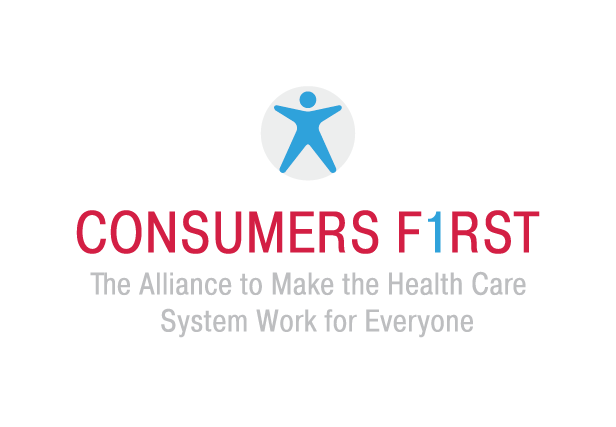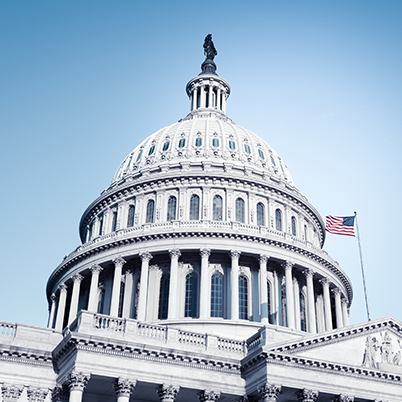
White House Executive Order on Hospital Consolidation Answers Consumer Calls to Lower Health Care Costs for Nation’s Families
07.27.2021

On July 9, 2021, President Joe Biden signed a new executive order to promote competition in the American economy, a wide-ranging order that includes 72 initiatives across more than a dozen federal agencies. Most importantly, it acknowledges years of calls from consumer organizations, working people, employers, and primary care clinicians to rein in the growing trend of consolidation in the health care sector which often results in unaffordable, low-quality health care in the United States.
For decades, the U.S. health care system has been in a cost crisis, with national expenditures on health care rising at a staggering rate and health care costs increasing faster than workers’ wages and inflation, making it difficult for families to access and afford health care.[1],[2] Biden’s executive order further validates and elevates onto the national health care policy agenda what researchers, advocates, and policymakers have known for nearly 20 years: High and rising health care costs in the U.S. are largely driven by consolidation across and within health care markets.
Health care consolidation occurs among hospitals, insurers, and other health care organizations that battle for relative market power and control to set prices. These anti-competitive practices also prevent data from being shared and undermine affordable, high-quality health care for our nation’s families, workers, and employers.[3] The impact of health care industry consolidation on U.S. health care affordability is a signature issue for Consumers First, a coalition that brings together organizations representing consumers, children, working people, employers, and primary care providers that work together to redesign the economic incentives of U.S. health care payment and delivery.
Consumers First has laid out a series of legislative and administrative policy solutions for Congress and the Biden administration to enact in order to lower health care costs and improve quality, including by restoring competition in U.S. health care markets. The president’s executive order specifically addresses two issues at the center of the Consumers First policy agenda: hospital consolidation and hospital price transparency. Specifically, the White House executive order:
- Establishes a White House Competition Council within the Executive Office of the President, composed of executive agency secretaries, the U.S. Attorney General, and the Federal Trade Commission. The council will inform the administration’s efforts to address competition, including proposing legislation if necessary.
- Underscores that hospital consolidation can be harmful to patients and directs the FTC and the Department of Justice to review and revise the Horizontal Merger Guidelines and Vertical Merger Guidelines to ensure patients are not harmed.
- Directs the Department of Health and Human Services to support existing hospital price transparency rules and to finish implementing bipartisan federal legislation to address surprise hospital billing.
The emphasis on hospital consolidation in the president’s executive order is yet another strong signal from federal policymakers that increased scrutiny and accountability are expected for those within the health care industry that engage in anti-competitive practices that drive up health care costs for everyone. The executive order builds on the important bipartisan work from the Senate Health, Education, Labor and Pensions (HELP) Committee, which passed the Lower Health Care Costs Act of 2019, landmark legislation that included numerous provisions aimed at reining in abusive health care prices and anti-competitive behavior. While the full bill never received a vote on the Senate floor, two of its key provisions were enacted into law as part of the COVID-19 economic relief bill in December 2020: protecting consumers from surprise medical bills and a prohibition on “gag clauses” used in contracts between health plans and providers that prevent sharing of critical information about the cost and quality of health care.
And more action is expected. The 117th Congress has already held key committee hearings looking at the issue of hospital consolidation and its impact on the affordability and quality of care patients and consumers receive, including a hearing held by the Senate Judiciary Subcommittee on Competition Policy, Antitrust, and Consumer Rights earlier this year. On the regulatory side, Secretary Xavier Becerra and his team at HHS worked to implement a historic Hospital Price Transparency regulation that went into effect in January 2021, requiring hospitals to post, for the first time, health care prices to their websites so that consumers can access health care cost information before they receive care. The secretary is a natural ally for this work given his track record as California’s attorney general on addressing anti-competitive behavior in the state’s health care markets.
The president’s executive order should help to encourage further HHS oversight of hospitals as the agency grapples with the fact that less than 20% of hospitals are in compliance with the new requirements more than six months after they went into effect. In its efforts to improve oversight, HHS recently adopted a Consumers First policy methodology to increase the penalty on hospitals that do not comply with the new regulation in its proposed CY 2022 Medicare Hospital Outpatient Prospective Payment System rule from a civil monetary penalty of $300 per day to $10 per hospital bed per day. While Consumers First recommends increasing the penalty to $300 per hospital bed per day, the Biden administration’s approach to addressing hospital noncompliance with the Hospital Price Transparency regulation should send a strong signal to insurers that will be subject to a similar Transparency in Coverage regulation that goes into effect in 2023, requiring insurers to disclose health care prices to consumers prior to receiving care. Importantly, the public supports the administration’s efforts to increase hospital price transparency. According to recent polling, nearly 75% of voters support increasing the penalty for hospitals that do not comply with the current regulation to $300 per hospital bed per day. In addition, the polling shows that 82% of adults, including 86% of Democrats, 81% of Republicans, and 79% of independents, support the federal government using its authority to ensure that Americans know the prices of health care before they receive it.
Biden’s executive order is one more step forward in the march to fundamentally change unfair economic incentives in health care payment and delivery that have historically favored the entrenched interests in the health care sector at the expense of families, children, working people, and employers. The executive order, taken in combination with recent action from Congress and new leadership at HHS, shows that policymakers are finally aligned and ready to respond to the calls from their constituents that health care industry players that engage in discriminatory or anti-competitive practices, or provide expensive and low-value health care, should not be rewarded in the U.S. health care system.
[1] Alliance for Health Policy, “Chapter 6 – Delivery System Reform,” in Sourcebook, August 31, 2017, http://www.allhealthpolicy.org/sourcebook/delivery-system-reform/.
[2] Centers for Medicare & Medicaid Services, “National Health Expenditure Projections 2018-2027: Forecast Summary,” n.d., https://www.cms.gov/Research-Statistics-Data-and-Systems/Statistics-Trends-and-Reports/NationalHealthExpendData/Downloads/ForecastSummary.pdf.
[3] Michael F. Furukawa et al., “Consolidation of Providers into Health Systems Increased Substantially, 2016-18,” Health Affairs 39, no. 8 (August 2020), https://www.healthaffairs.org/doi/10.1377/hlthaff.2020.00017.




